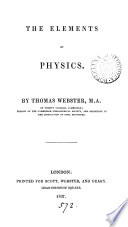 | Thomas Webster - 1837 - 512 pages
...surface. For this purpose, he reasoned on his law of universal gravitation, which may be thus stated; ' Every particle of matter in the universe attracts every other particle, with a force varying inversely as the square of the distance.' Reasoning on this law, he calculated, from the effect... | |
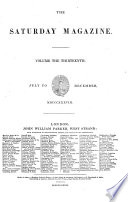 | 1839 - 272 pages
...results from gravitation. The great Newton discovered and established the law of universal gravitation, " that every particle of matter in the universe attracts every other particle, with a force varying inversely as the square of the distance :" by which is meant, that if a body be attracted by... | |
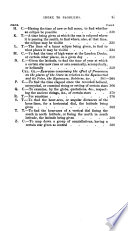 | T H. Howe - 1842 - 458 pages
...that case, the general law applies in its strict wording." — Sir John Herschefs Astronomy p. 237. " Every particle of matter in the universe attracts...particle with a force directly proportioned to the mas of the attracting particle, and inversely to the square of the distance between them." — Ibid,... | |
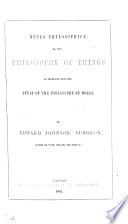 | sir Edward Johnson - 1842 - 586 pages
...planetary motions, the velocities of falling bodies, &c., would have frequent occasion to mention the fact that " every particle of matter in the universe attracts every other particle with a force proportional, &c. &c." But this would be extremely troublesome, and even difficult to introduce intelligibly.... | |
 | 1905 - 864 pages
...constitution; this being, of course, only a particular case of Newton's law of gravitation, which tells us that every particle of matter in the universe attracts every other particle with a force which depends on their masses and on the distances which separate them; the attraction being proportionately... | |
 | 1846 - 534 pages
...gravitation and attraction, by which all bodies, liquid or solid, are governed. Newton's words are — " Every particle of matter in the universe attracts...particle with a force directly proportioned to the mass (and density) of the attracting particle, and inversely to the square of the distance between them... | |
 | Archibald Tucker Ritchie - 1850 - 580 pages
...opinion of astronomers. Sir John F. Herschel, in referring to Newton's law of gravitation, says — " Every particle of matter in the universe attracts...directly proportioned to the mass of the attracting partiele, and inversely to the square of the distance between them." And again — " It is in consequence... | |
 | J. D. Bell - 1850 - 486 pages
...when you see it on record. It is the theory of universal gravitation — the grand generalization, that every particle of matter in the universe, attracts every other particle of matter with a force or power directly proportioned to the quantity of matter in each, and decreasing... | |
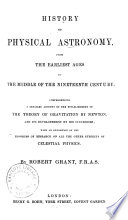 | Robert Grant - 1852 - 686 pages
...future advancement in the study of Celestial Mechanics. Already the sublime truth announced by Newton, that every particle of matter in the universe attracts every other particle with a force varying reciprocally as the squares of their mutual distances, has been realised in tbe motions of... | |
 | Ohio state medical society - 1853 - 338 pages
...leave the labors of a few computations to a friend. When they were completed, the law which proved, that "every particle of matter in the universe, attracts every other particle of matter, with a force or power, directly proportioned to the quantity of matter. in each, and decreasing... | |
| |